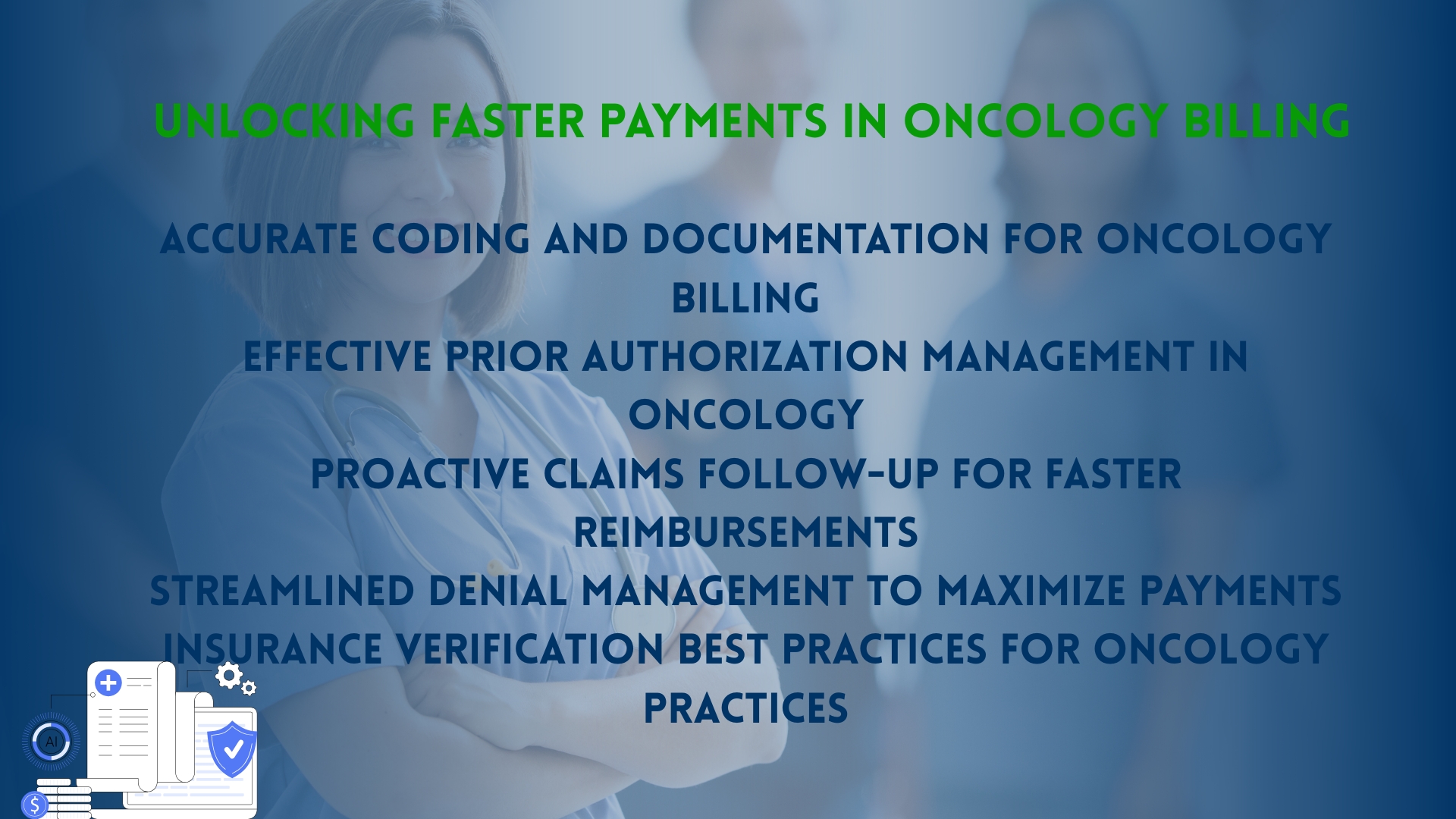Insider Oncology Billing Strategies for Speedier, Larger Payments
Oncology billing can be complex due to the specialized services and treatments involved. However, with the right strategies in place, you can streamline the process, reduce denials, and secure faster, larger payments. In this guide, we will explore essential oncology billing strategies to help you crack the code for maximizing your reimbursement potential.

What is Oncology Billing?
Oncology billing is the process of submitting claims for services provided to cancer patients. These services range from chemotherapy and radiation treatments to consultations and follow-up visits. The complexity of oncology billing arises from the unique codes and procedures used for cancer treatment, as well as the various insurers and reimbursement models that govern payment.
Why is Oncology Billing Important?
Accurate oncology billing is crucial to ensure that healthcare providers are reimbursed correctly and promptly for the care they provide. Due to the high costs of cancer treatment, billing mistakes can lead to costly delays or denials, impacting both the financial health of the practice and the quality of care patients receive. Effective oncology billing ensures that patients’ treatments are properly covered, and practices are financially sustainable.
Key Strategies for Effective Oncology Billing
- 1. Use Correct Coding for Oncology Treatments: Accurate coding is essential for ensuring proper reimbursement. Oncology services require specific coding for each treatment, including chemotherapy, radiation, and surgeries. Stay up to date with the latest ICD, CPT, and HCPCS codes for oncology-related services.
- 2. Verify Insurance Eligibility Before Treatment: Verify the patient's insurance coverage before providing any oncology services. Confirm their eligibility for treatments such as chemotherapy, surgery, and radiation therapy. This helps avoid the risk of claim denials due to non-coverage or expired policies.
- 3. Submit Claims Promptly: Ensure that claims are submitted as soon as services are rendered. Timely submission can help prevent claims from being denied due to missed deadlines and ensure faster payment.
- 4. Ensure Proper Documentation: Clear and detailed documentation of all services provided is crucial for successful claims. Include relevant diagnostic information, treatment notes, and patient consent forms to support the billing codes used and reduce the risk of denials.
- 5. Use Modifiers Correctly: Oncology treatments often require the use of modifiers to provide additional context or clarify the nature of the service. Using the correct modifier ensures that your claim is processed correctly and prevents unnecessary delays in reimbursement.
The Role of Technology in Oncology Billing
Technology can greatly improve the efficiency of oncology billing. By using automated billing software, oncology practices can reduce the risk of human error, streamline coding, and expedite claim submission. Additionally, software tools for eligibility verification, coding updates, and claim tracking can provide real-time insights into the status of claims and help practices respond to issues quickly.
Prioritize Patient Education and Communication
Educating patients about their insurance coverage, potential out-of-pocket costs, and the billing process is vital in oncology. Transparent communication helps manage patient expectations and reduces the likelihood of payment issues later on. Provide patients with clear explanations of their financial responsibilities and treatment options.
Appeal Denied Claims
Denied claims are a common occurrence in oncology billing, but they are not the end of the road. If a claim is denied, analyze the reason and submit an appeal if necessary. Having an effective process for managing and appealing denied claims can help recover lost revenue and ensure timely payments.
Regular Training for Your Billing Team
Keep your billing team updated on the latest oncology coding, billing practices, and insurance policies. Regular training sessions will help your team stay informed about changes in the industry, improve their efficiency, and reduce errors that could lead to denied claims.
